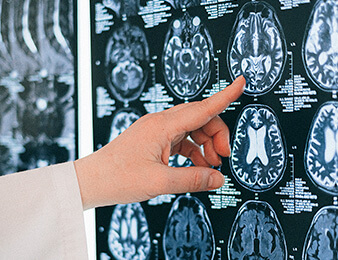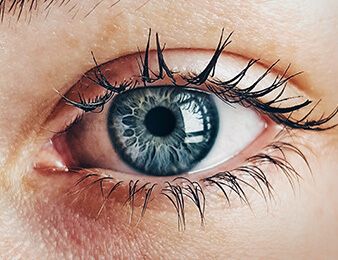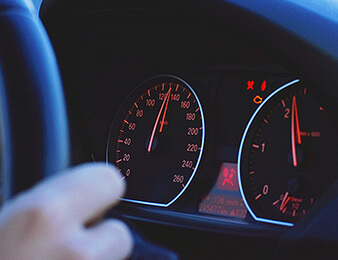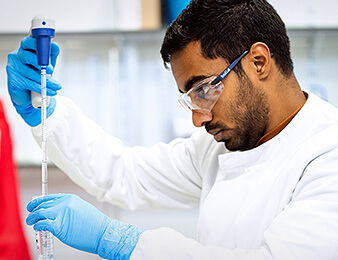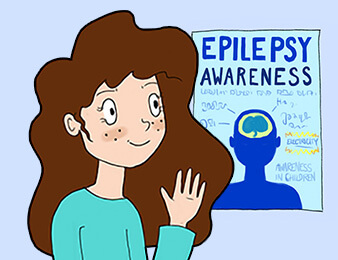MREA
For a proportion of patients, a further option does exist, namely neurosurgical treatment for their epilepsy.
Find out more here.
The first port of call is usually the GP who, if there is a suspicion of epilepsy, refers patients for the expert opinion of a hospital consultant.
Epilepsy is as common as diabetes and asthma. With as many as 1 in 103 people affected, epilepsy is the most common neurological disorder.
Epilepsy can effect woman in many ways, find out about contraception, fertility and pregnancy.
You should be aware that certain situations can increase your seizure frequency— read our list here.
Certain geometric patterns, flashing and flickering lights can provoke some people towards having seizures.
If you or someone you know has been diagnosed as having a convulsive type of epilepsy, it is essential to be aware of basic first aid procedures
As early as 2080 BC, Hammurabi, King of Babylon, made mention of it in his laws. Then, as now, it assumed both medical and social importance.
Drugs prescribed by doctors for the treatment of epilepsy do not offer a cure for the condition but a means for controlling seizures.
Getting the diagnosis of epilepsy can be daunting or confusing, so MREA have put together a comprehensive guide to keep you informed.
It can be confusing understanding the new words and phrases associated with epilepsy. MREA has put together a Glossary of Terms to help you.
Misinformation can lead to prejudices towards epilepsy sufferers, so we have put together a list of facts to debunk those myths.
There is no evidence to prove that complementary therapies control seizures, but they may be used in conjunction with antiepileptic drugs.
Sudden Unexplained Death In Epilepsy is relatively rare but nevertheless people should be aware that epilepsy can be attributed as a cause of death.
Taken in moderation drinking beer and spirits can be pleasurable and relatively harmless. It is the abuse of alcohol which causes the trouble.
Family members have to be extremely careful not to try and live their loved ones lives for them — but it’s equally as important to try and protect them.
Impairment is more common in people with epilepsy than those who have other neurological disorders. Read the issues that can be caused by epilepsy.
Read the information on epilepsy, from the National Co-ordinating Committee on Swimming for the Disabled.
All parents who have epilepsy will know how important safety measures are in the home. Find out more advice and safety measures from MREA.
If you have epilepsy, thinking positively about what you can do is important when looking for a job and keeping in employment.
There are rules and regulations for gaining or holding a drivers licence. See if you are eligible, to ensure your own safety and those around you.
The most obvious benefit to all who have epilepsy is the provision of free prescriptions which covers the cost of all medications. Find out more here.
Where epilepsy is diagnosed in the early or middle teens, knowing the facts can ensure a balanced attitude towards the condition.
Teenage years are complicated enough as it is, so we have prepared a companion guide for you to help find out about epilepsy.
From Diagnosis to Treatment, Employment to Education, advice for work and homelife — our guide has got you covered.
This section is addressed to those who teach the 100,000 children and young people in the UK who have some form of epilepsy.
In 2001 a White Paper was presented to the European Parliament in Brussels to support epilepsy via educational programmes.
Travelling abroad with epilepsy can raise some safety issues, so we have provided some essential phrases and downloads to help you on your journey.
The standard and new anti-epileptic drugs clinical trials were designed to identify the most effective and cost-effective treatment for patients.
Neuroimaging research in epilepsy in Liverpool is led by Dr Simon Keller. Most of this research is performed using MRI scans.
Consideration is given to adults and children, from the presentation of first seizure to long-term outcomes of epilepsy surgery.
Much of the research in Merseyside is undertaken by the Epilepsy Research Group at the University of Liverpool led by Professor Tony Marson.
Our Interactive Illustrated Junior Encyclopaedia lets you explore the world of epilepsy and learn about all the key subjects.
Test your knowledge with our quizzes or download some of our games to keep yourself entertained or to play with a friend.
It is thought that at least one person in every 103 has epilepsy. This means that in Britain alone there are at least 150,000 children with epilepsy.
Molly is 11 years old and has epilepsy. Our story tells us more about her epilepsy and how doctors helped her to control her seizures.
There have been many famous people throughout history with epilepsy — from artist Vincent Van Gogh to rapper Lil Wayne.
As Chairman of the Association I offer you a very warm welcome to our newly developed website.
Read Simon’s statement.
The new governing body comprises of four experts, with leading scientists in the epilepsy research field.
Get to know them here.
If you have any questions about the role of MREA or want to discuss opportunities to get involved with our work, please contact us.
We are a charity, so your support is vital for us to continue helping epilepsy sufferers in the region.
Find out how you can help us.
MREA
Registered Charity Number: 504366
Email us at: info@epilepsymersey.org.uk
Follow us on social media:Donate
Donate today and help MREA make a difference.
Donate